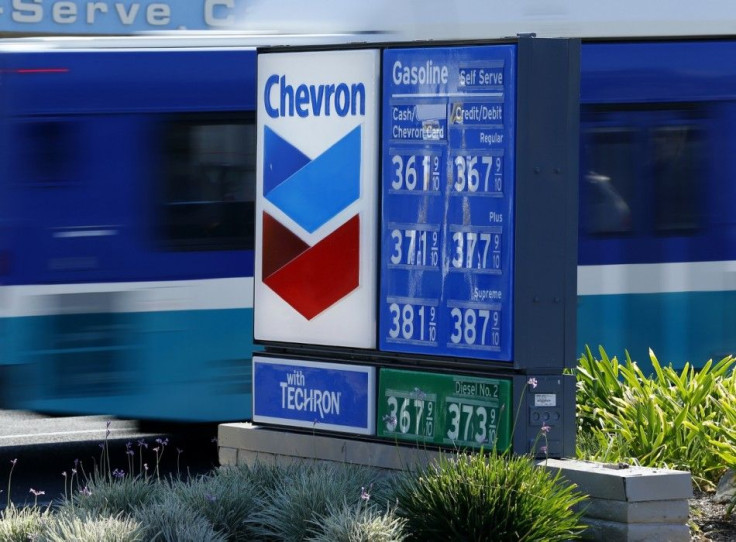Sliding Oil Prices Forces Chevron To Abandon ‘Indefinitely’ Canadian Arctic Drilling Project, Shares Up

Chevron Corp has decided to abandon "indefinitely" its arctic offshore drilling program in Beaufort Sea in Canada over the industry's economic uncertainty, mired by the falling oil prices in the global market over the last six months.
The Arctic region, according to the U.S. Geological Survey, holds 30 percent of the world's undiscovered natural gas, 20 percent its liquefied natural gas, along with 15 percent of oil. It is for this very reason that the Arctic nations - Canada, Denmark, Finland, Iceland, Norway, Russia, Sweden, and the U.S. - along with its companies, want to get first dibs of the massive natural resources.
Apart from Chevron, Imperial Oil Ltd., Exxon Mobile Corporation, and BP p.l.c. also have announced plans to drill in the Beaufort Sea. However, they have yet to make updated pronouncements of their drilling plans relative to the continued downfall of the prices of oil.
In its letter to Canada's National Energy Board, Chevron said on Wednesday "its drilling plans for EL 481 (have been put) on hold indefinitely." The EL 481 spot is in the Beaufort Sea, located 250 kilometres (155 miles) northwest of Tuktoyaktuk, Northwest Territories.
Doug Matthews, an analyst and former oil and gas director with the Northwest Territories government, told CBC News Chevron's announcement wasn't surprising. "Companies all over the world are starting to pull in their horns," he said, noting it is but only justified and acceptable that companies have to conserve their cash. "So we're seeing delays everywhere."
Observers believed Chevron suspended its drilling plans, which would supposedly start in 2020, because a lot of cash in needed to realize that project in that part of the world. Arctic offshore-drilling costs are among the highest because of its remote location, not to mention severe weather. Chevron did say that its projects "must be competitive in our global exploration portfolio."
Despite the project hold, Chevron Corp's shares were higher by 1.62 percent to $107.74 in pre-market trade after it made its announcement, The Street said. Chevron also said in its letter to Canada's National Energy Board that it "will not be proceeding with an application for an advance ruling on whether Chevron's drilling plans for EL 481 meet or exceed the intended outcome of the Board's Same Season Relief Well ("SSRW") requirement. Chevron will continue to monitor regulatory applications by other operators in the region."
Chevron paid $88.38 million (C$103.3 million) to get the rights for oil exploration in the 508,000 acre area (206,000 hectares) of EL 481. The region is just east of the Canada-U.S. border, Reuters said.






